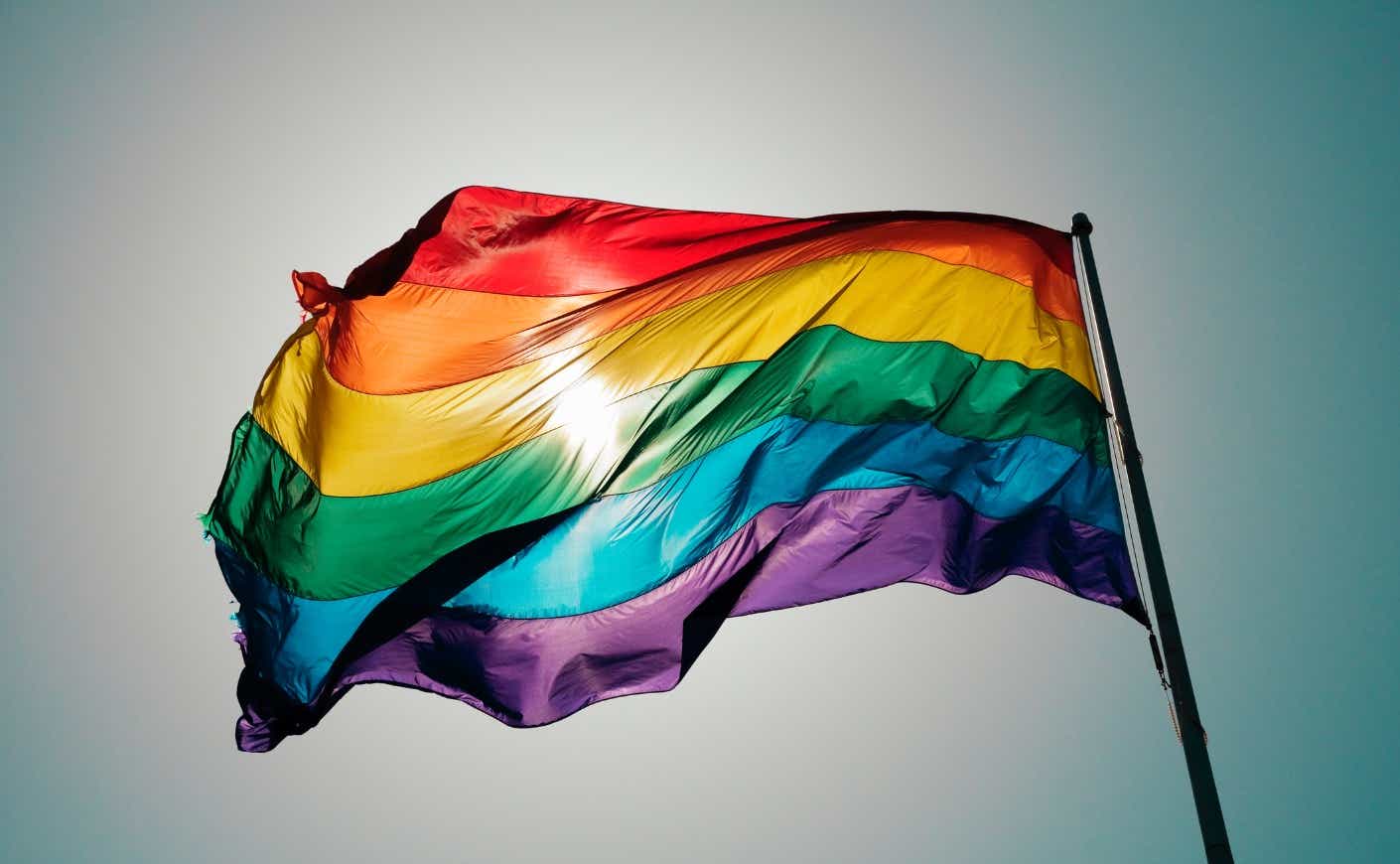A cloud of controversy is hanging over Florida as the state government moves ahead with a new bill that would bar schools from discussing LGBTQ+ topics that aren’t considered “age-appropriate.”
At least a dozen schools have staged walkouts in protest over the legislation, which would limit what primary school educators teach about sexual orientation and gender identity. It’s also drawing fire from politicians who say the problematic consequences will be vast. Among them is state Rep. Carlos G. Smith, who became the state’s first openly gay Latino lawmaker in 2016 and has made it clear that he intends to continue to fight it all the way.
But where does the bill stand now? The legislation, which has been dubbed “Don’t Say Gay” by opponents, has been cleared by the GOP-led legislature, and it’s now headed to Gov. Ron DeSantis’s desk to be signed into law. The question now is whether the Republican governor will actually sign it (though he has signaled support, he hasn’t definitively taken a public stance) but if he does, it could go into effect as soon as July.
I sat down with Smith to help break down the bill’s implications on students and the public at large. You can see our full conversation here:
What will ‘Don’t Say Gay’ do?
“The bill prohibits classroom instruction and inclusion of sexual orientation, or gender identity,” says Smith. “That’s people like me, LGBTQ Floridians who will now be censored from classroom instruction, specifically in K through three, and then in a manner that is not age-appropriate for grades four through 12, which is extremely subjective.”
The actual intent of the bill has been broadly misunderstood, with many — wrongly — interpreting its intended target as sex education.
“What’s happened so much in this debate is that supporters of the bill continue to say that it’s about censoring or restricting the teaching of sex ed in grades in younger grades and in K through three before it’s age-appropriate” explains Smith. “That’s not what the bill does. The bill doesn’t say anything about sexual education. It prohibits classroom instruction on sexual orientation or gender identity, which isn’t an act. It is a group of people, specifically LGBTQ Floridians.”
The bill is actually targeting discussion around people’s sexual orientation and gender identity — both normal parts of society’s makeup that many kids will already be aware of.
“That’s why it has really struck a chord amongst Floridians and struck a nerve amongst people around the country,” says Smith. “Gay Floridians like myself are a healthy and normal part of every society and of every school, and conversations about us aren’t dangerous.”
Were teachers even instructing on sexual orientation?
Short answer? No. “The sponsors and supporters of the bill weren’t able to produce a single example of when classrooms or teachers in Florida’s public schools have been introducing classroom instruction or curriculum on sexual orientation or gender identity,” says Smith. “But because the bill is written in such a vague and broad manner, it’s raised a lot of concern about the ability of schools to create safe and healthy and inclusive school environments, particularly for LGBTQ students.
The erasure of demographics which so many kids will already be familiar with is absurd — and hits particularly hard given the contrasting experience of some of the legislature. “We see kids with two moms or two dads who come from LGBTQ families in every single school in the state of Florida and in the country,” says Smith. “The visibility of families that may look different than Governor Ron DeSantis his family would be censored.”
What about the ‘Stop WOKE Act’?
Smith explained how a second controversial bill, the Stop WOKE Act, is also a “top priority” for Gov. DeSantis, and even more far-reaching than Don’t Say Gay. “It censors the ability of not just schools, but also of private businesses and corporations, to be able to engage in important Diversity, Equity and Inclusion training that we’ve all become so used to,” he explained.
The bill is also extremely divisive, and conceived based on a false narrative of what’s being taught in schools. “The bill restricts any type of classroom instruction or curriculum about race or history that makes someone feel discomfort or guilt, which is extremely subjective,” Smith said. “The governor originally framed this Stop WOKE Act as his response to the so-called teaching of critical race theory in our public schools, which is not happening.”
“If you learn about some of the atrocities, not just in our world history, about European history about World War Two or even about the Civil Rights Movement here in the United States, in the lead up to the passage of the Civil Rights Act… It’s okay for the teaching of history to elicit an uncomfortable response.”
For more critical insight from Rep. Smith, and other worrying indicators of the dangers of erasing conversations about LGBTQ people in schools, check out his full interview with Katie above.









